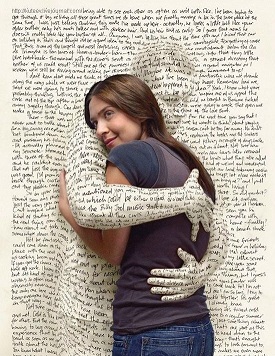AnzAuthors Blog Making Up Words
Image courtesy The Republic of Skin blog Our family is renowned for making up their own words. The other day my husband came up with a classic. I’d said I might go and play tennis since it was cooler, so long as there was not a wind up. ‘But it looks like just a breeze,’ I said. ‘A brind,’ my husband replied. In other words it was not soft enough to be a breeze and not strong enough to be a wind but something in between. My daughter makes up words all the time. Even as a child she did. Maybe it comes from have a writer for a mother and playing umpteen years of Upwords together where she experimented with words she often never knew the meaning of but just thought it sounded like it ought to be a word. Many times she found they were words. Other times she queried me as to what words meant. Words I used all the time, but sometimes trying to explain them simply to a child was not so easy. As an adult , if she can’t find the word she wants, she makes it up. We always know exactly what she means. I feel disimpressed is much more descriptive than unimpressed. We all tend to use it now. I see nothing wrong with making up words. Sometimes it comes from the business world, as I heard on the radio the other day about someone talking about upskilling. Shakespeare did it and some of his words have progressed into common language. Tolkien did it and so have other writers, like Les Murray. Poets are renowned for it. Sometimes they will also change the way a word operates, so instead of it being an adjective they may use it as a verb as I did when I wrote, when rhododendrons purple the parks. This comes from Initiated into Blue, one of the poems in my collection Kaleidoscope. Even now, those who email or SMS regularly do. Yesterday I heard that LOL, which used to be always the abbreviation for laughing out loud in an email, is now used as a word in its own right. Pronounced lol, rather than the expanded version. Of course the danger with abbreviations is that not everyone always knows what they mean. Like the person who received an email telling them a loved relative had died. They sent a quick reply back with LOL at the end of it. They always thought it meant lots of love. Imagine their red face when they found out it meant laughing out loud. Not exactly a sympathetic response to the news of someone’s death. I see no problem with an author making up words or changing the way they are used. However the same applies with abbreviations or the words we make up. If you’re going to make up words, people have to understand what you are trying to say. Written by Dale Harcombe HTML Comment Box is loading comments...
|
